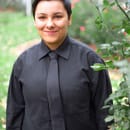I will start off this stream of consciousness with an excerpt from the Merriam Webster Dictionary.
“Self (noun):
(1) an individual’s typical character or behavior (“Her true self was revealed”)
(a) an individual’s temporary behavior or character (“His better self”)
(b) a person in prime condition (“Feel like my old self today”)”
(2) : the union of elements (such as body, emotions, thoughts, and sensations) that constitute the individuality and identity of a person”
The concept of “self” is something I have struggled with for 19 years. Anyone who has listened to me in a vulnerable moment of emotional word-vomit knows this. “I don’t know how to be myself” is something that runs through my head a lot. Others stress about school or relationships or family, but most of my stress comes from this monumental philosophical question: “Who am I?”
It sounds kind of pretentious, but stick with me. When it comes down to it, the ideas of “I,” “self,” and “me” are much more than words—they are like huge galaxies of intertwining concepts about identity. “Being myself” encompasses about a million other psychological subconcepts. It has to do with emotions, expression, communication, confidence, mental health and so much more. The idea of “I” is like the pinnacle of weird brain stuff.
So, who am I? Sure, at an objective level, I can tell you who I am. I am a young woman, I am a college student, I am a writer, I am an artist and I am a thinker. I am an intelligent person who cares about academics. I am someone who cares about mental health and all things brain-related. I am someone who wants to teach kids someday. I am a daughter, a sister and a niece and a granddaughter. I am someone who loves cheesy horror movies, alternative music, thrift shopping, playing Pokémon, daydreaming and drinking good tea.
These are the neatly organized, distinct boxes I can place myself into. They are easy ways to describe myself in a first day of school icebreaker. But how much weight is each of these identities supposed to hold? Which box is the most important? Are there varying levels of importance, or does it all fuzzily blend together into one being that is me?
And what does “being yourself” even look like? This, to me, is the most puzzling. I only have vague answers for this question, based on past experience and observing other humans. I deduce that “being yourself” is manifested in:
-
Acting in a way that feels natural
-
Showing genuine emotion
-
Communicating effectively
-
Being honest
-
Staying true to your morals
But all of that is so surface-level. It all has to do with the body, not the mind. To what extent are you defined by the way you move your body and speak words? What does this physical vessel have to do with self? If I didn’t have a body, couldn’t move, couldn’t speak, couldn’t act—what would be left of myself? I have no idea.
The biggest piece of evidence I have towards figuring out “me” is an ambiguous sensor in my brain. The “Me Sensor,” let’s call it. The Me Sensor detects and gives me some vague idea of when I am being myself versus when I’m being insincere. I don’t know how to verbally explain what “being myself” looks like, but in a way, I can feel it. I’m only somewhat aware of the stimulus sets off the Me Sensor (usually the way I talk or act in certain situations). But is that even an indication of who I am? Maybe not, but it’s a start.
When I feel like I’m not being myself, I get uncomfortable. Like, weirdly uncomfortable. I mentally beat myself up for it. I hate not representing myself in a genuine way, because that leads to assumptions.
Something about me despises assumptions. I can’t stand people who think they have me “figured out.” Once, my teacher nonchalantly told me I was “shy and quiet” and I cried about it in the bathroom. I was fuming because in my head, I was anything but shy and quiet. And yet, somehow another human ascribed those words to me. It meant I must have been doing something wrong. It made me see this huge discrepancy between my genuine self and my presented self. (Whether that discrepancy is real or not, I’ll never know.)
People making assumptions about my character scares me, because it gives me a glimpse into how others see me—and that is something I don’t want to see. It’s akin to hearing your voice in a video; you cringe and ask “Is that really how I sound?” It totally flips what you thought you knew about yourself. But should it? Or should you embrace others’ opinions as clues towards finding yourself?
All of these ideas are questions that (likely) have no definite answers. They are hypotheses in a lifelong personal experiment of the mind. And like I do with most things, I will just have to wing it until I feel satisfied. Maybe someday I’ll figure it all out. I don’t know if the process will be gradual, or if it will just dawn on me one day. Maybe I have to wait for it to approach me, or maybe I have to pack my bags and set out to find it. But I’ll get there—somehow, some way. Until then, I will continue to take pride in the person I think I am.



